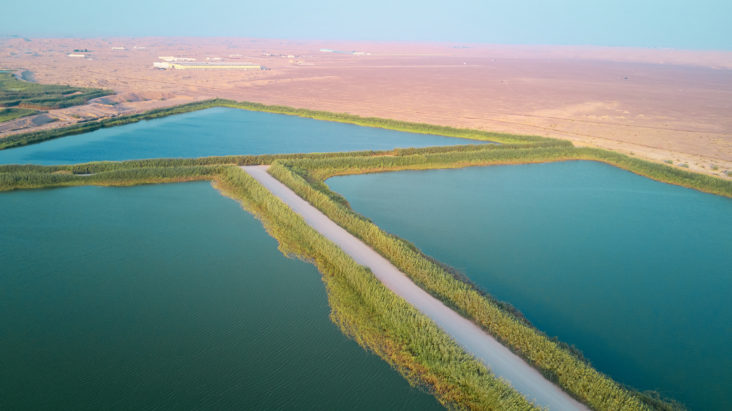Sharjah Facility To Double Waste Water Treatment Capacity By 2022

A company operating the strategic wastewater treatment assets in Sharjah is planning to double its treatment capacity by 2022, a senior executive told Emirates News Agency, WAM.
“Today, we are focusing on expanding our wastewater treatment capacity. We target to double it by 2022 in order to cope with the increased population in Sharjah,” said Gurvan Dersel, General Manager at Qatra Water Solutions.
Qatra is a Public-Private Partnership between the Sharjah Investment and Development Authority, Shurooq, and BESIX, a company operating in infrastructure concessions and construction.
It operates a wastewater treatment plant that treats more than 30,000 cubic metres of wastewater daily coming from all over Sharjah. The treated water is mainly used in landscaping and construction sectors.
About other future plans, Dersel revealed that construction of a recycled water filling station in Bridi would be completed by the end of June to supply local farms with reliable and affordable water, and to provide reused water to a park close to the facility.
“We have pushed sustainability to its maximum by transforming a wastewater plant into a bio refinery concept where anything going out can be improved and reused,” said Dersel about the company’s most important achievement since its establishment in 2019.
There is an essential Research and Development partnership with the University of Sharjah and the Sharjah Research Academy on how to reuse the treated water widely.
Qatra has also just started to operate a brand new facility that produces and delivers high-quality water for non-drinking applications, which uses the best water treatment technologies available. “It is the first of its kind in Sharjah,” the General Manager said.
The company has pointed out that each emirate in the UAE has invested heavily in centralised tertiary wastewater treatment over the last 20 years, but nearly 50 percent of this high-quality water is discharged to the environment, leading to eutrophication of coastal waters, due to absence of integrated reuse solutions.
Asked about Qatra’s contribution to offer an integrated solution to solve this issue, Dersel said the company’s treatment facility is located inland, without any possibility to discharge treated water to the sea.
“This pushes us to find alternative solutions, like the storage lakes that became a haven for many birds, direct pipeline supply to key off takers or the setup of the water recycling plant. This water is extremely valuable and an affordable and sustainable alternative to desalination water for many applications,” he explained.
Wastewater treatment is a cheaper and more eco-friendly solution than desalination that consumes more power and causes pollution, the executive said.
“Our recycling plant consumes four times less power compared to a similar sized desalination plant, and it obviously translates into pricing. We can accordingly propose prices 20 to 30 percent lower than the market prices.
“The quality of water we produce is excellent, but we do not brand it as drinking water because of its source. Nonetheless, it can serve many applications, such as district cooling, steel factories, chemical or ready-mix plants. The very low content of salt makes it a premium product for all of these industries.”
Still many factors do not promote wastewater-recycling plants in the UAE.
“The first one is the infrastructure required for conveying this water to end-users. It is expensive and difficult to deploy. The second one is the acceptability of the water. Despite its scientifically proven properties, the human psychology eventually reinforced by our cultural background discourages its adoption,” Dersel said.
Some countries, such as Singapore and the US – especially California – have overcome these two challenges, he pointed out. “They went through a mix of technological solutions, legal framework, and education. We feel that the UAE is also taking this route, driven by the water scarcity in the region.”
The company’s Al Saja’a site supports a wide range of biodiversity wherein a large number of species, both flora and fauna thrive.
“We are extremely proud of the wildlife that has developed at the site. We have near threatened species [according to the United Nations] and migratory birds that found home in this territory. It all developed around our recycled water storage lakes. We are now working to arrange this area and create a discovery area for kids,” Denser revealed.

